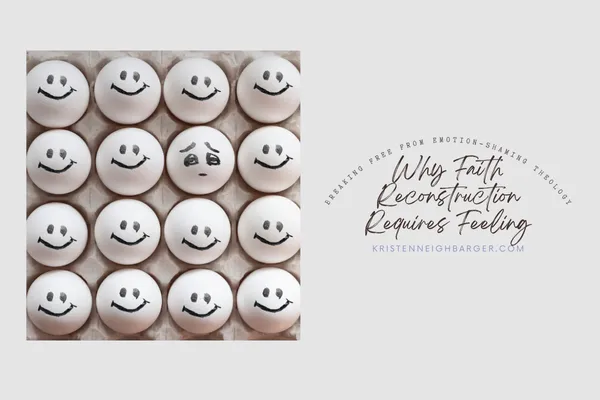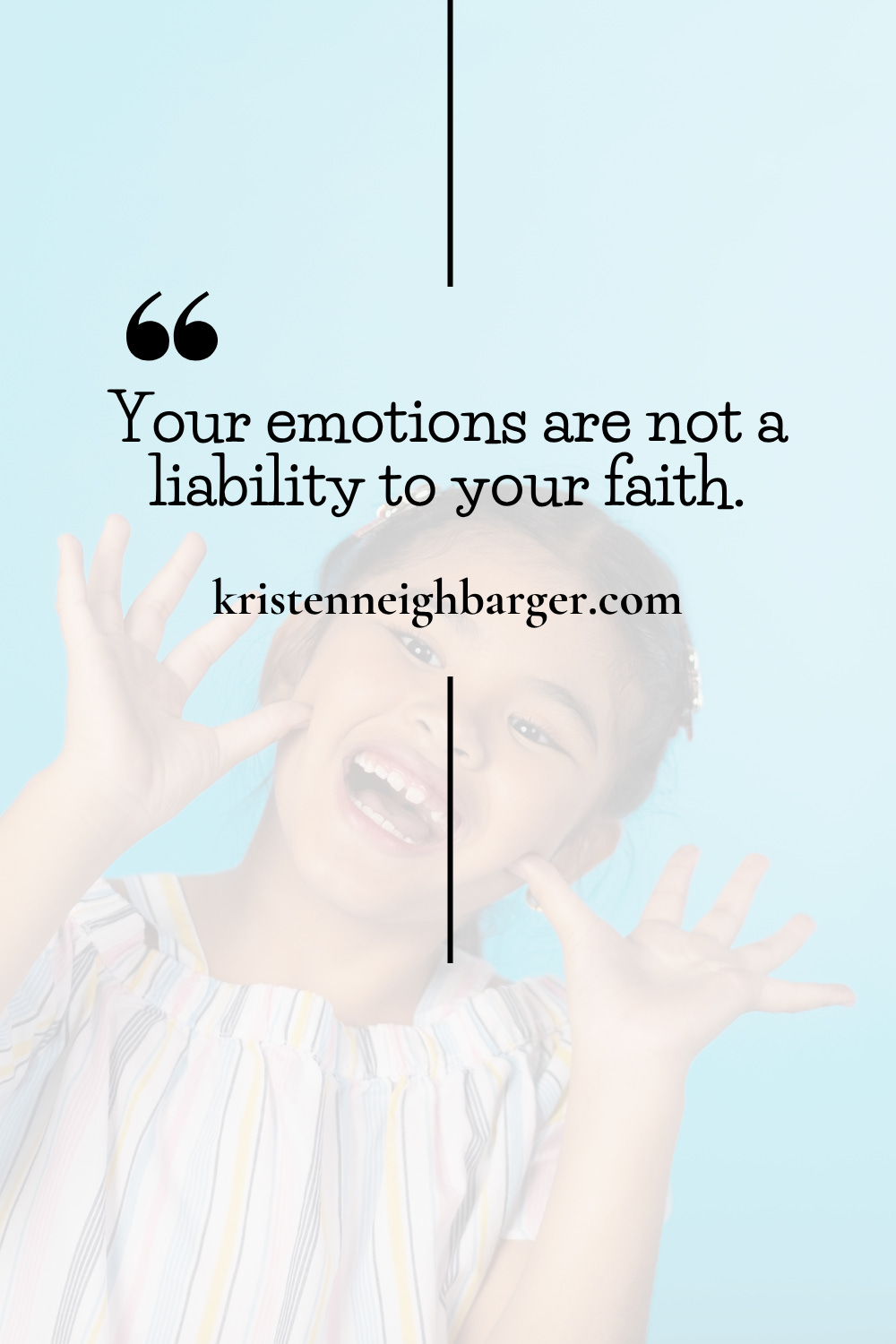
Why Faith Reconstruction Requires Feeling:
I Didn’t Do Feelings
It was 1998.
I was living my best life as a zealous Pharisee at a Christian college, reading excerpts from I Kissed Dating Goodbye to wide-eyed junior high and high school students who hadn’t yet learned to question spiritual authority.
I had mastered the arts of people-pleasing and peacekeeping.
Emotions?
They were for the spiritually weak.
Good Christians were the ones who ignored their emotions for the sake of Christ—whatever the heck that meant. I could recite Bible verses, defend questionable theology, and channel all of Paul’s thoughts for the churches of his time. But if you asked me what I was feeling, I probably would have rattled off a Christian cliché about the joy of the Lord or some other equally cringey, copy-and-paste response I’d been taught.
I didn’t do feelings—because I had been taught not to have them.
When Faith Erases Feelings
If something bad happened, it was “God’s will.”
If something amazing happened, it was “God’s blessing.”
If someone acted like a complete jerk, they were “being led astray by Satan.”
My ability to name my emotions had been overwritten by spiritual platitudes weaponized to shut down anything uncomfortable. We rolled our eyes at the fictional citizens of Gilead in The Handmaid’s Tale with their rigid formulas like Under His Eye and May the Lord Open—but were we really so different?
Margaret Atwood’s book was fiction.
Our lived experience was not.
It took years, a string of traumatic life events, and a good therapist to teach me how to identify and articulate my emotions. And honestly? Even now, I still find myself defaulting to peacekeeping and people-pleasing when things get hard. It’s easier to stuff my emotions than to face the internal disruption of owning them.

The Cost of Emotional Bypassing
In Chapter 4 of my book, Breathing Again, I explore why healing from spiritual trauma requires more than just questioning doctrine—it requires learning to name what that doctrine did to us.
The weight of emotion we carry from bad theology doesn’t just disappear when we walk away from toxic beliefs. It lingers—in our nervous systems, our inner dialogue, our relationships, and our responses to everyday stress.
I write about how easily those old patterns resurface—especially when life gets hard or uncertain. Even in my own marriage, when we faced job loss and financial instability, I spiraled back into guilt and performance mode, convinced that maybe God was punishing us.
Not because I believed that anymore.
But because those messages were etched deep.
What I Know Now
You cannot reconstruct your faith until you learn to feel.
You can’t heal from spiritual abuse without acknowledging the fear, guilt, shame, confusion, and anger it left behind. You can’t rebuild your spiritual identity on a solid foundation if you’re still emotionally bypassing your pain to appear “okay.”
Let me remind you:
You don’t have to perform.
You don’t have to be fine.
You don’t have to package your pain into a palatable testimony.
You’re allowed to grieve the theology that hurt you.
You’re allowed to feel it all.

Let’s Be Honest
So let me ask you this:
What emotions have you been taught to suppress in the name of “faith”?
Where in your story have spiritual clichés replaced emotional honesty?
What would it look like to give yourself permission to actually feel?
Your Next Step Toward Healing
If you’re ready to begin that work, Chapter 4 of Breathing Again will meet you there—with truth, with grace, and with the freedom to be fully human again.
👉 Grab your copy of Breathing Again and join me in reclaiming the emotional space that was taken from us in the name of “spiritual maturity.”
You don’t need to fake it anymore.
You’re allowed to feel—and still belong.
